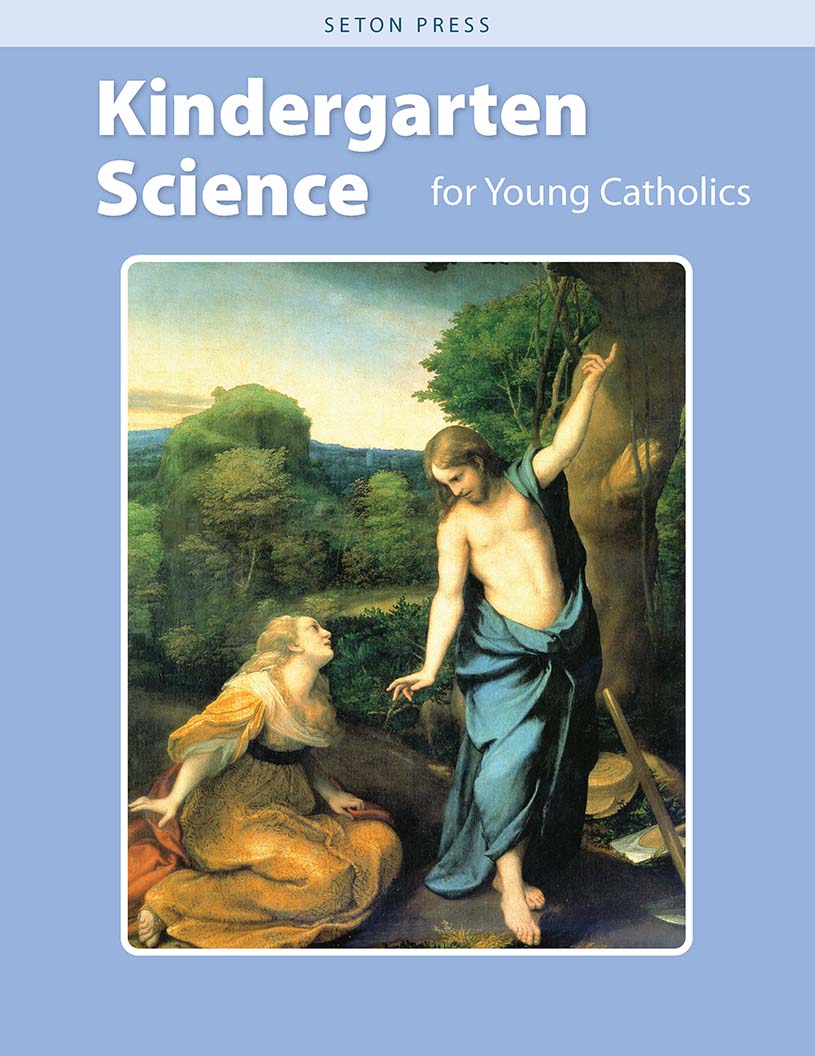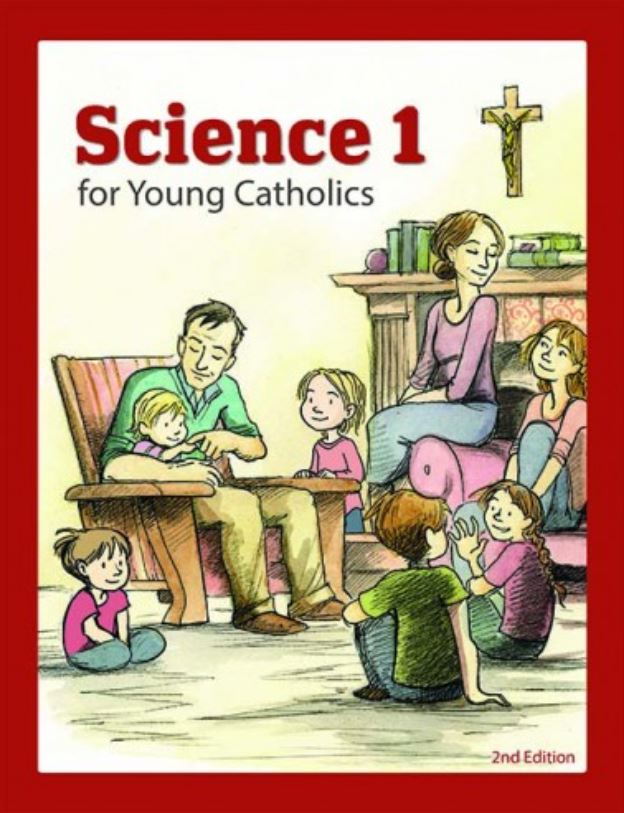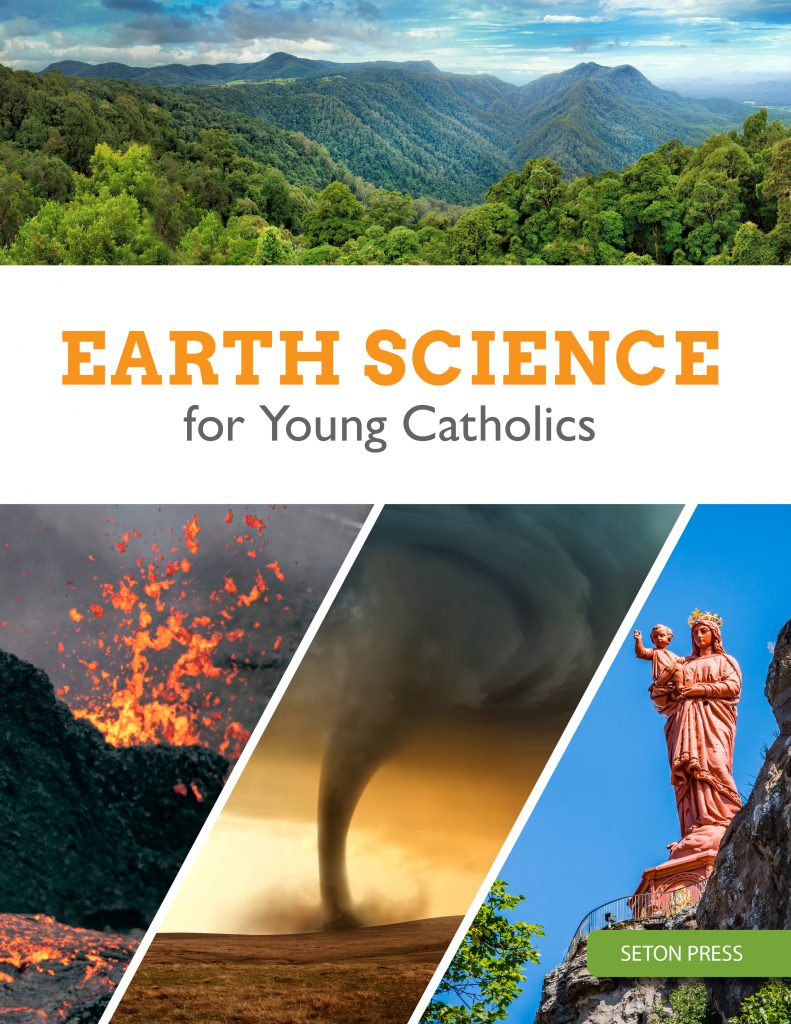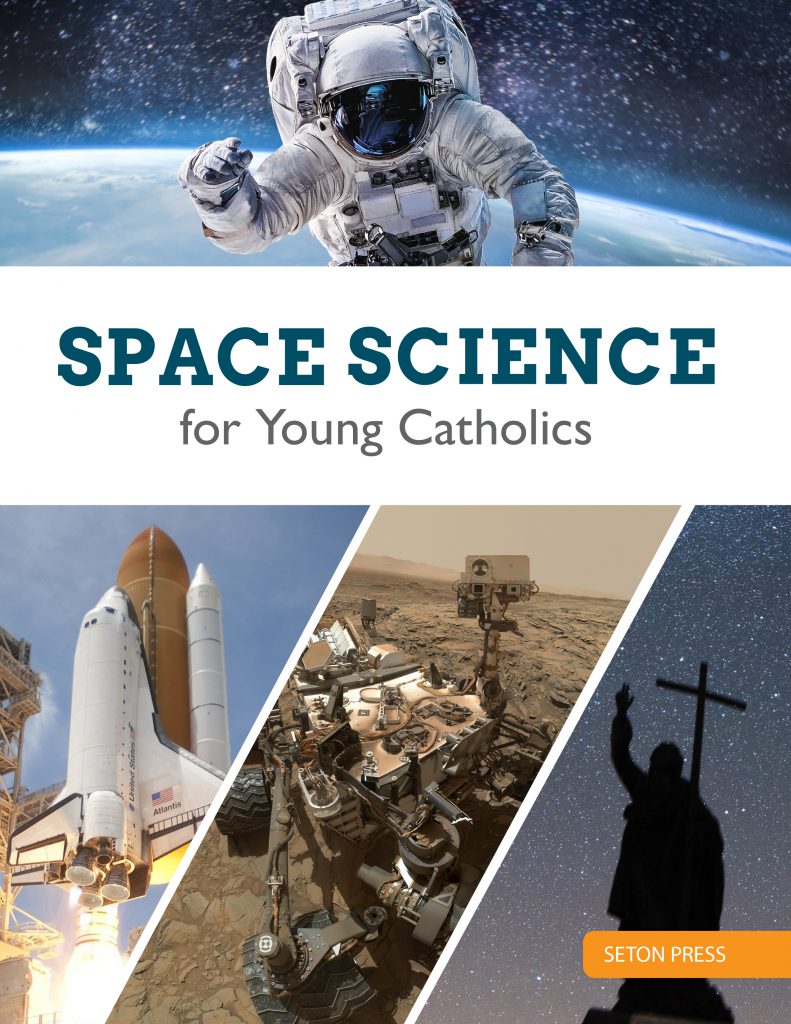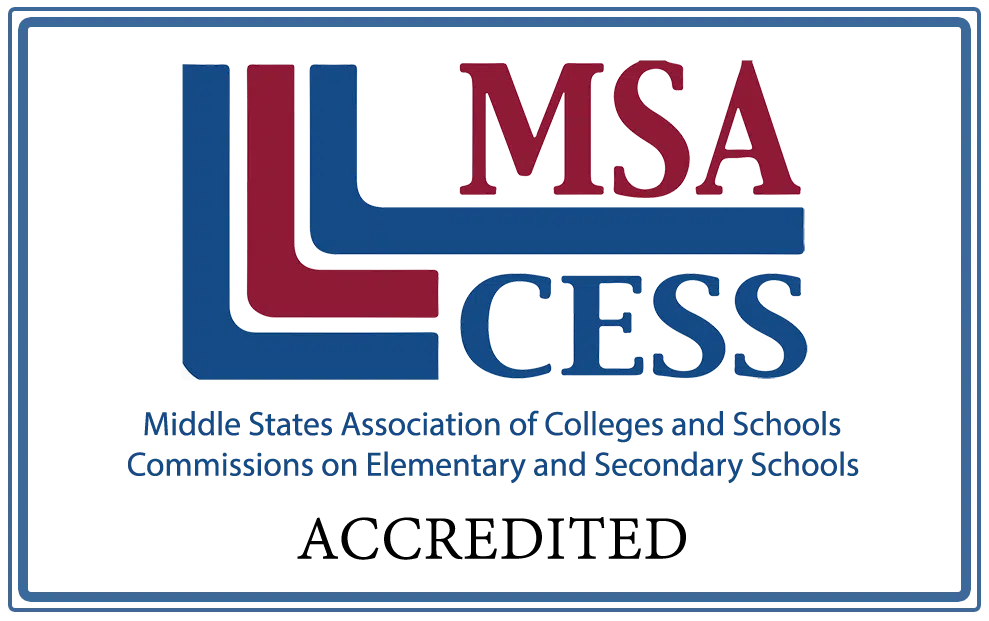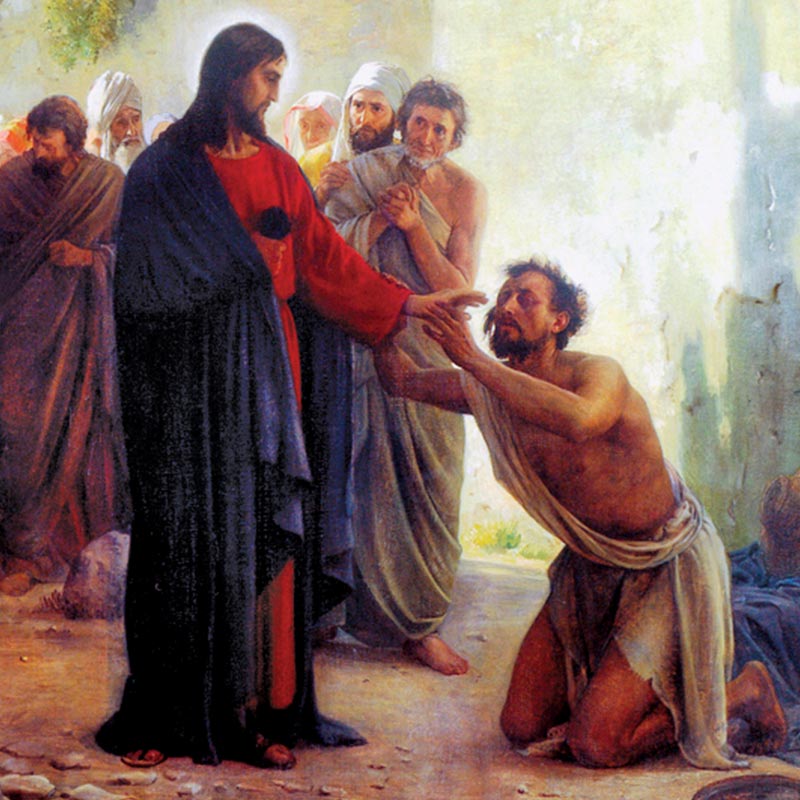
Catholic Homeschool Curriculum
Seton’s Science Program
Science gloriously manifests God’s power and creation. Catholics have been at the forefront of science for centuries, and we want to help train the next generation to love science, no matter the career path they choose. In recent years, Seton has been working to complete a full Science for Young Catholics series that presents a robust scientific understanding in an exciting way and with a deep appreciation for the role of God as the author of creation.
Science K
Kindergarten Science for Young Catholics introduces science and the scientific method by providing experiments that can be done at home. Includes suggestions for field trips to museums, zoos, and aquariums and Catholic comments throughout, with a section on what God can do after each lesson.
Science 1
Science 1 for Young Catholics introduces science and scientific terms, as well as Health and Safety, in a charming Catholic children's story. Topics include Cleanliness, Care of Teeth and Eyes, Safety in the Home and Outdoors, Cycles of Nature, Simple Machines, Energy, and much more.
Science 2
In Science 2 for Young Catholics, students learn about the Scientific Method and then move to the Five Senses using many hands-on activities to strengthen understanding. Students will learn about digestion, circulation, bones, skin, and muscles. Health and safety, healthy eating, and household safety are also covered. This engaging text includes "Facts to Remember" and practical applications for daily living.
Science 3
Science 3 for Young Catholics introduces students to the basics of Earth Science, Physical Science, and Life Science. Students will begin to discover the solar system, our amazing planet, weather, matter, motion, simple machines, plants, insects, birds, mammals, and more.
Science 4
In Science 4 for Young Catholics children explore their world, learning about topics such as the heavens, water, material things, machines, living things, the wonder of man, and taking care of their health.
Science 5
Science 5 for Young Catholics expands on our continuing theme of appreciation for God as the Creator of His amazing world and the incredible enormity of His intellect which is beyond anything we could ever imagine.
Within the pages of our new fifth grade science book, Seton offers the student and family an understanding of the human body by showing how God in His infinite wisdom designed not only several intricate systems, but also designed the human body to be able to heal itself.
Additionally, the last four chapters explore God’s marvelous design in mammals, birds, reptiles, amphibians, and fish. Scriptural and Catholic theology references throughout reinforce these concepts.
Alternate Course: Apologia Zoology 1
This alternate science program is based on Exploring Creation with Zoology 1: Flying Creatures of the Fifth Day, which is studied for the first three quarters of the year. This course gives elementary school students an introduction to the incredible world of flying animals. Topics covered include: Process of Classifying Animals, The World of Birds, The World of Bats, Prehistoric Flying Reptiles, and Insect Characteristics and Lifestyles.
The Health 5 for Young Catholics text, which is scheduled for the fourth quarter, should help your student appreciate the miracles of the human body, so generously given by God as part of our nature and assumed by the Second Person of the Blessed Trinity at the Incarnation.
(Textbook not included with standard tuition.)
Science 6
Earth Science for Young Catholics and Space Science for Young Catholics together make up the Grade 6 Science course.
Earth Science for Young Catholics opens with a thorough review of general science topics including the Scientific Method, and measurement, with a strong emphasis on the international metric system. Newton’s Laws of Motion and his Laws of Universal Gravitation are presented to give students an understanding of the forces that shape the planet. Earth’s internal structure and Tectonic Plate Theory, as well as landforms, soil, saltwater, and freshwater are investigated. Other topics include atmosphere, the biosphere, weather, and climate. Extreme weather and natural events, and unusual landforms are sure to attract student interest. The book closes with a look at how populations meet their energy needs and discusses responsible stewardship of the environment.
Space Science for Young Catholics takes students on an excursion through the created universe, most especially our own solar system. Topics include the history of space exploration, Earth’s moon and other solar system bodies, and a closer look at each planet. The worktext moves outside the solar system to interstellar and even intergalactic space. Students are introduced to modern space advances, including the recent SpaceX program, and get a glimpse into possible future exploration. Space Science for Young Catholics highlights important contributions Catholics have made to mankind’s quest to understand the universe.
Alternate: Zoology 2 (Swimming Creatures)
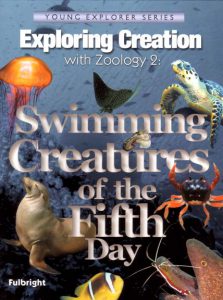
For health, students study the digestive system, the circulatory system, and the respiratory system in Health 6 for Young Catholics with special emphasis on the pre-born child.
Science 7
Science 7 for Young Catholics introduces students to chemistry, physics, aeronautical engineering, geology, and rocketry. Students do hands-on activities that require only household items.
Science 8
Students study Life Science 8 for Young Catholics, an engaging, comprehensive life science program. The text/workbook was written and reviewed by Catholic medical doctors using clear explanations and bright, colorful pictures. The well-designed presentation uses hundreds of high quality diagrams, photos, and illustrations to make even challenging concepts easy to understand.
The first semester of the course covers the science and chemistry of life, beginning with the cell and single celled organisms, and progresses through fungus, plant, and animal kingdoms. The focus of the second semester is human biology and covers the different systems in the human body including the respiratory, circulatory, and digestive. The course is designed to prepare students for High School Biology.
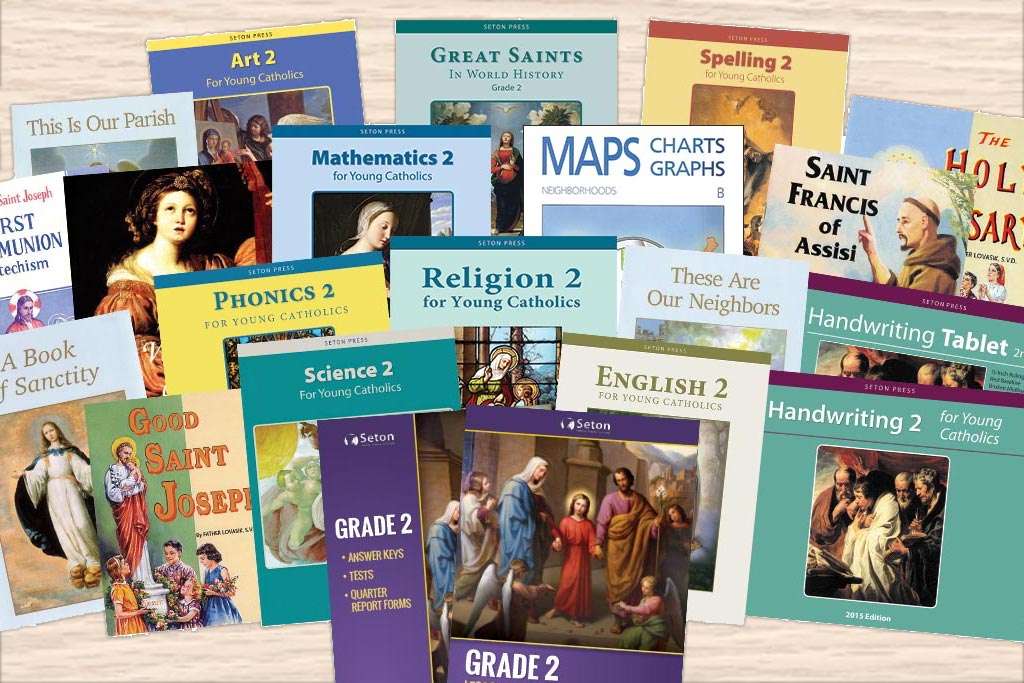
Full Enrollment
Learn More
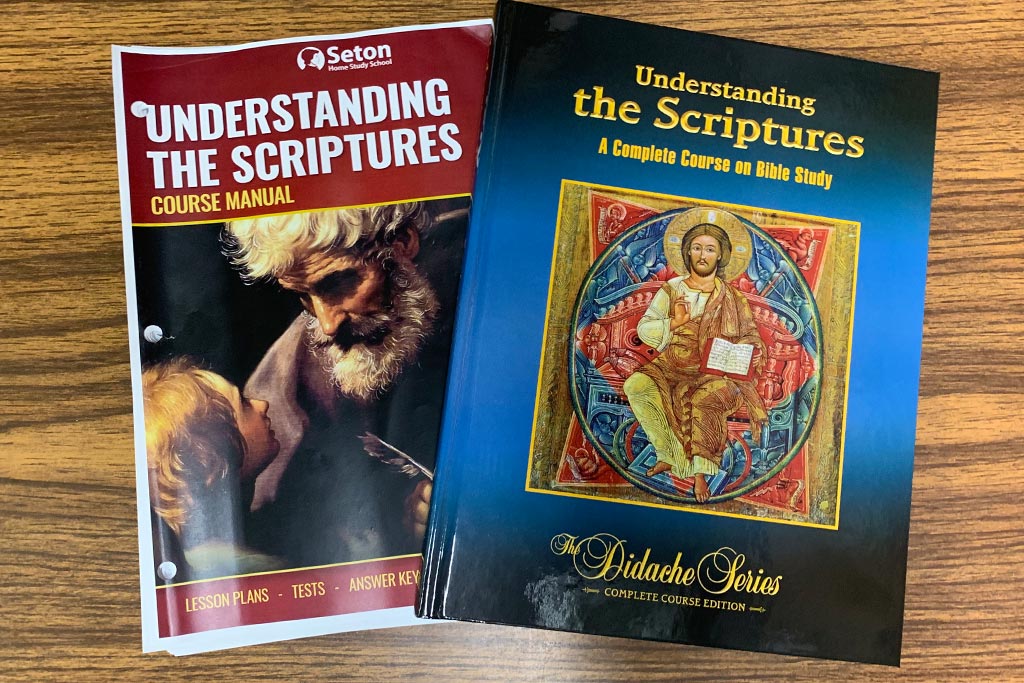
Single Course Enrollment
Learn More

Book Sales
Learn More

